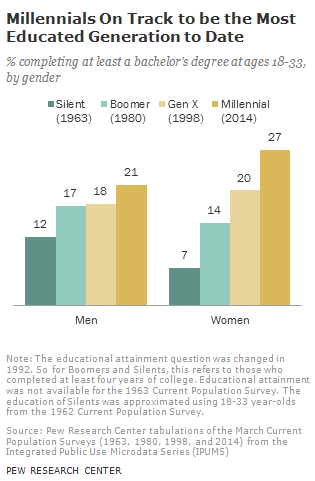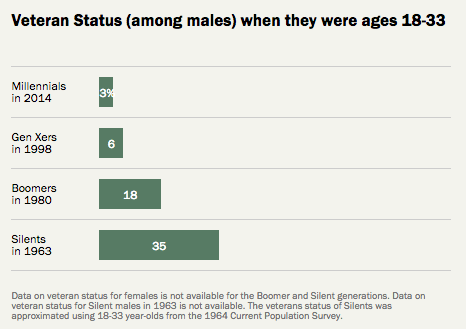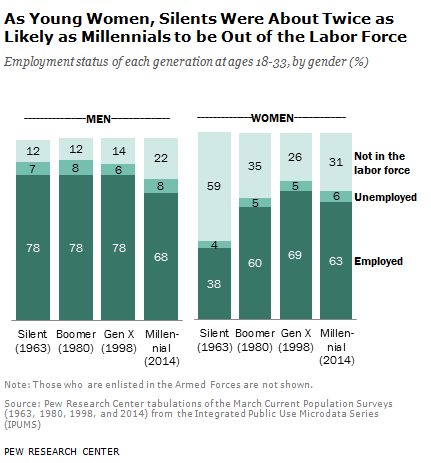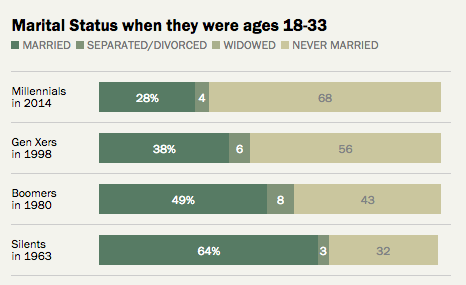3 Surprising Ways Your Grandparents Were Much Different Than You

By:
Millennials are more nostalgic, cynical, and distrustful of major political, religious, and media institutions than previous generations, according to researchers and cultural theorists. Yet, despite the widespread and disparaging side-eye of today's youth, a new study reveals that the kids are more alright than critics seem to believe. Analysis conducted by Pew Research shows that while the times have changed, in many areas, today's young adults are better off than their grandparents were.
Here's 3 major ways your grandparents were different than you as young adults.
1. Your grandparents' generation was less educated than yours
Young women of today are nearly four times more likely than their grandmothers to receive a bachelors degree. While 27 percent of women from 18 to 33 today have completed a B.A., only 7 percent of Silent Generation women received one at the same age. The Silent Generation refers to people born from the mid 1920s to early 1940s, and it includes the grandparents of many of today's Millennials.
 Pew Research - pewresearch.org
Pew Research - pewresearch.org
The gains aren't as extreme among men, but they're still significant. Close to 21 percent of today's Millennial men have achieved at least a Bachelor's degree, while only 12 percent of their grandparents had reached this level of education while between the ages of 18 and 33. One reason less Silent Generation men went to college as young adults may be because more of them served in the military. The analysis also found that in 1963, young men were 10 times more likely to be veterans than today's young adult men.
 Pew Research - pewresearch.org
Pew Research - pewresearch.org
2. Far more young women are in today's workforce than that of the 1960s
In 1963, only 38 percent of women of ages 18 to 33 were employed, while 63 percent of today's young women have jobs.
This is partly due to shifts that occurred in the 1980s. During this period, 6 out of 10 women had jobs:
 Pew Research - pewresearch.org
Pew Research - pewresearch.org
But, the really important change happened in education. According to Pew, 22 percent of unemployed women in the Boomer generation, the parents of today's Millennials, spent their time at school, compared to only 12 percent of unemployed women in the Silent Generation. Of those unemployed women in the Silent Generation, 85 percent said the major activity that consumed their time was housework.
3. Your grandparents were twice as likely to be married at your age
 Pew Research - pewresearch.org
Pew Research - pewresearch.org
In 1963, most American women got married at 21 and men at 23. Two-thirds of Millennials surveyed said they would eventually like to get married, but today's young adults are more likely to put marriage off until later in adulthood.
Today's typical American woman marries at 27, while men are most likely to marry at 29. Of those unmarried Millennials, 29 percent said that they haven't married for financial reasons, while 26 percent said they hadn't found the right person and another 26 percent said they were simply too young.
While there's nothing inherently bad about marrying young, today's comparably meager numbers of young married couples may contribute to more women pursuing higher education and entering the workforce rather than devoting the majority of their time to housework.
This story, first published on Feb. 10, was updated on Feb. 11 to correct that 22 percent of unemployed Boomer women, not Millennial women, spent their time in school.
